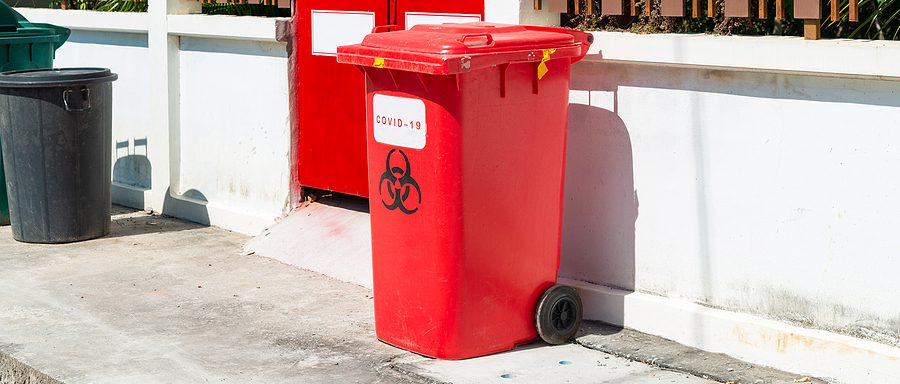Tips for Creating a Surgical Fluid Waste Management System

There’s one substance produced across all hospitals, clinics, and surgical centers, and that’s medical fluid waste. This waste is generated during procedures like surgeries and medical tests, and poses a significant risk if mishandled or improperly discarded. That’s why regulatory bodies are strict about facilities’ fluid waste management processes. Let’s take a closer look at what surgical fluid waste is, how it’s regulated, and best practices for managing it effectively in healthcare settings.
What is Fluid Waste?
In medical facilities, surgical fluid waste is any liquid that is produced during a medical or surgical procedure. These fluids can originate in the human body or be a manmade fluid used in an operating room. Regardless of the source, significant amounts of fluid waste are produced throughout a surgery, especially during invasive surgeries or trauma cases, and must be properly disposed of.
The potential presence of infection in this type of waste makes it biohazardous, which requires it be discarded according to strict fluid waste management guidelines. This helps to avoid contamination and environmental harm. Both hospitals and clinics must adopt strategies to efficiently manage this waste, ensure a safe workplace, and maintain a sustainable approach to healthcare.
Some examples of this type of medical waste include:
- Urine
- Blood
- Spinal fluid
- Amniotic fluid
- Irrigation solutions
- Pleural fluid
How Surgical Fluid Waste is Regulated
In the U.S., the disposal of medical fluid waste is regulated by a variety of federal and state laws. Additionally, they must adhere to protocols outlined by the Occupational Safety and Health Administration (OSHA), the Environmental Protection Agency (EPA), and even the Department of Transportation (DOT).
OSHA enforces the Bloodborne Pathogens Standard, which requires hospitals and clinics to prevent exposure to infectious fluids. It mandates treating all fluid waste as biohazardous and requires safe disposal by certified companies.
Meanwhile, the EPA oversees the treatment of liquid medical waste to protect the environment. It sets rules for neutralization and disposal containers. The DOT regulates the transportation of liquid waste across the country. Compliance with these regulations not only protects healthcare staff but also prevents the release of hazardous substances into the environment.
How Fluid Waste Management Works
Fluid waste management begins with containment and collection in operating rooms. Modern suction devices and canisters are commonly used to capture and contain liquid waste during surgeries. Once collected, this waste is typically treated either on-site or by a medical waste disposal service.
No matter the procedure, the fluid waste management process often follows the same steps:
- Containment: Suction systems are used to collect fluid waste during surgery, typically stored in specialized canisters. Some advanced systems integrate the fluid into a closed-loop system that minimizes exposure risk.
- Solidification: Many facilities use chemical solidifiers to convert liquid waste into a gel-like substance. This solidified material is easier and safer to transport.
- Disposal: Once collected and treated, the waste is transported to certified disposal facilities. These facilities follow strict protocols to neutralize or incinerate biohazardous materials.
Proper Fluid Waste Disposal Guidelines
Use Closed Suction Systems
Utilizing closed-loop systems not only prevents spills and reduces the risk of exposure, but it also streamlines the fluid waste collection process in a way that more easily adheres to OSHA and EPA regulations. The systems can easily be built into operating rooms or even incorporated into mobile carts for ease of use.
Adopt Solidification Techniques
Converting liquid waste into solid form is not only safer but also more compliant with transportation regulations. This is typically done by adding a special solidifying agent to your liquid waste that helps you avoid the usual risk of spills.
Partner with Certified Disposal Services
Rather than taking on the task of searching for a fluid waste management solution yourself, Medical Waste Pros will connect you with a trusted local provider from our network. These companies are equipped to transport and dispose of your surgical liquid waste in an affordable, environmentally-friendly way.
What You Shouldn’t Do
Don’t Pour Anything Down the Drain
As convenient as it may sound, pouring liquid waste down the drain is not only environmentally harmful but also illegal. Not only are sewage systems not equipped to handle biohazardous material, but the potential aerosolization and/or splashing could also put employees at risk for infection.
Don’t “Cap and Can” Your Waste
While a combination of suction containers and red biohazard bags used to be the standard, this “cap and can” practice is no longer the most efficient or cost-effective. This is because not all liquid waste is considered biohazardous. By following current disposal guidelines, you’ll use your suction canisters less and only use biohazard bags when necessary.
Don’t Skimp on Training Your Staff
In order for your staff to properly handle biohazardous waste, they need adequate training. Cutting corners on initial training and neglecting continuous retraining can result in accidents or non-compliance with regulations.
What Happens When Fluid Waste Isn’t Properly Discarded
If you were to dispose of your surgical fluid waste without regard to best practices, there are a variety of consequences you might face. Considering the regulations involved, medical facilities can incur fines and legal repercussions from organizations like OSHA and the EPA. And if this doesn’t encourage proper fluid waste management, there’s also the risk of contaminating the local environment or spreading infection to your employees and through your community.
Prioritize Your Fluid Waste Management with Medical Waste Pros
With all the laws and regulations around fluid waste management and disposal, it’s safer to trust an expert in the field instead of trying to manage it on your own. Call Medical Waste Pros at (888) 755-6370 or fill out our form to request your free quote today.










